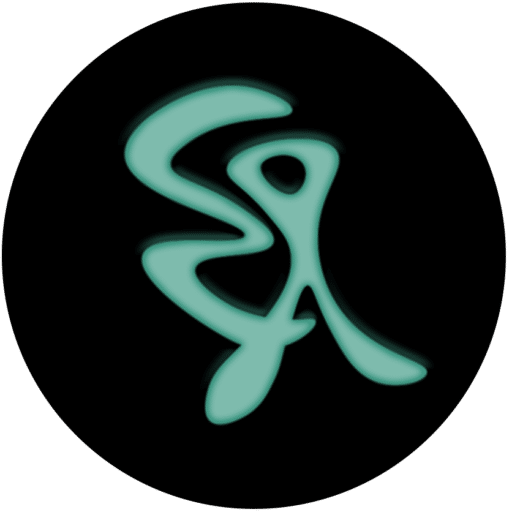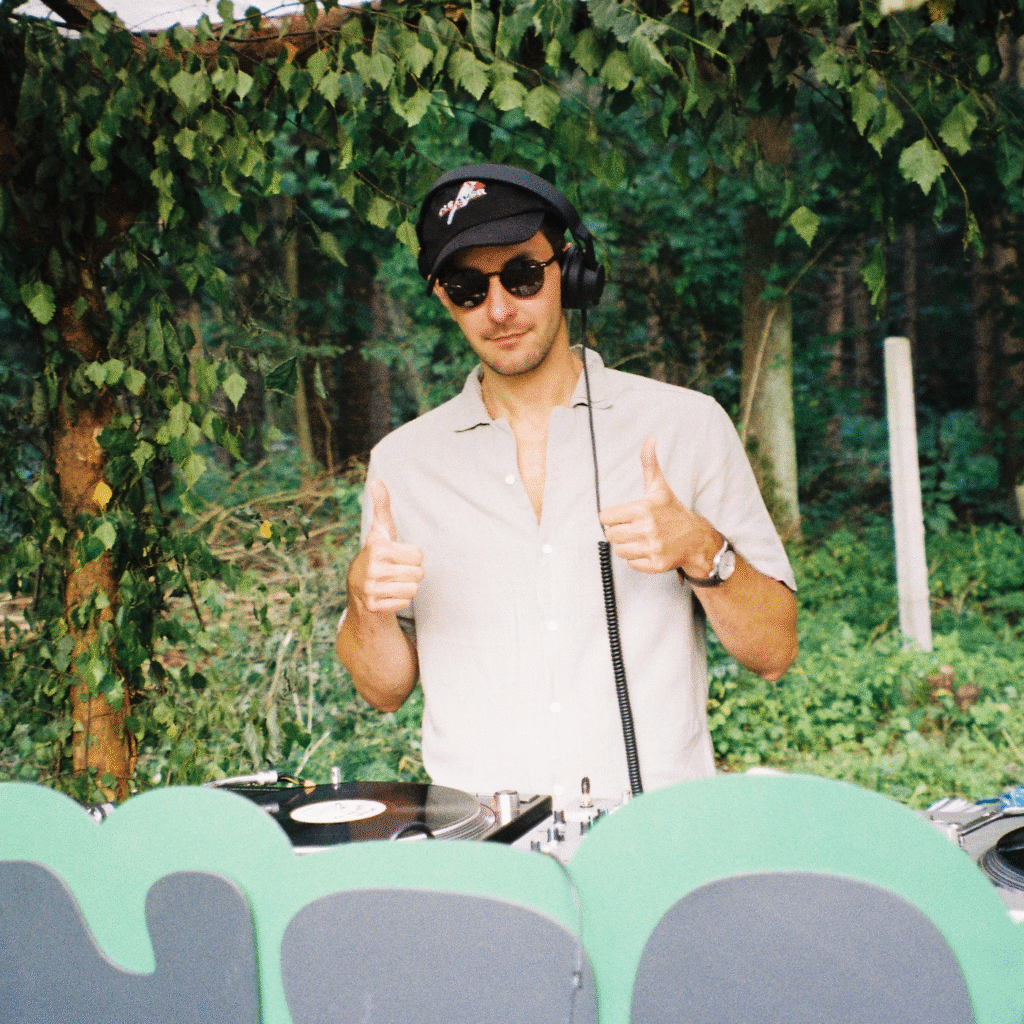We, at Early Reflections, owe a lot of our recent music discoveries to YouTube digger channels. They do the awesome work of ripping and uploading their music collections, full of unknown gems. Even if it’s sometimes hard to manage this profusion of new music and our need to listen to it all (the 6 browser windows with tabs maxed on my computer make me feel like Sisyphus), we have to thank them for all their work.
We wanted to know a little bit more about them, about their ecosystem and the constraints that go with posting on this platform, so we decided to post a series of interviews with them. This is the first one with a specially prolific one, tech house (but not only) oriented: Late Night Workout.
Disclaimer : this series is in no way an advertisement for YouTube. This platform has many problems, but it’s the only one which centralizes all the music that we love.
First of all, can you please tell us a few words about yourself, and how you came into digging so much electronic music? Do you engage in other activities related to it (DJ or party organizer, for example)?
Hi, nice to meet you guys! My name is Maciej and I run the Late Night Workout YouTube channel. When I think about it, I feel like I’ve come a long way to become an electronic music digger. I’ve always been sensitive to music — even as a kid I remember having that feeling when I heard the right tune. My music taste kind of evolved through the years, but music was present in my life on a daily basis. As a teenager I was constantly wearing my headphones, discovering new bands. As a young adult I spent whole summers at music festivals. An important part of it was sharing my music discoveries with my friends, so getting involved in DJing was a natural progression.
At some point I started collecting vinyl records — I loved the physical medium. A few years later I noticed I was getting more and more records that weren’t available to hear online, so I came up with the idea of starting a YouTube channel to upload the tunes that weren’t there yet, just so people could check them out. I didn’t develop the project much at first — I only started the channel but didn’t upload many tunes. It was originally called Lost in Reverie, after an EP by Rising Sun that I really love. A little later I started discovering proper digger channels — my favorites back then were Zaqaria and 151 Soundsystem. I liked how some channels had specific avatars, so I changed mine to the one I use now and renamed my channel to Late Night Workout.
For now, I only engage in DJing besides digging. I recently started a collective with my friends, so we’ll probably host some parties in the future. We’re called Floor Active, and you can check us out here. We’ve already had some gigs in the beautiful city of Wrocław — for example, at House Tęczowa or Ciało. If you ever visit Wrocław, these clubs are definitely worth checking out.
Where do you discover so many tracks that are completely unavailable online?
My main occupation is being a clinical psychologist — I work in a hospital and a clinic, so digging electronic music is kind of a therapy for me. Sometimes I spend 3–4 hours after work just looking for new music on Discogs. I can’t tell you all my secrets, but a good place to start finding music that’s not online yet is often physical record stores.
Can you please present to us the artistic direction you want to give to your YouTube channel, and give us 2 or 3 tracks that you think are representative of what you post?
The direction I want to give to my channel is reflected in the tracks I would be very likely to play during my DJ sets. At the same time, I’d like to maintain a variety of styles. My goal is still to upload tracks that aren’t online yet, so people can check out the album before they buy it. Sometimes I upload tracks I only somewhat like and I’m surprised by the response. This proves the rule that what’s crap to one person is gold to another.
At the same time, I really like it when people enjoy my uploads. Every now and then, I hear people say I shouldn’t upload so much because some DJs’ “secret weapons” are becoming available to everyone, or some albums are selling out because of it. However, those comments are very few compared to the people who enjoy my uploads. I have an incredibly strong desire to share my musical discoveries with others. Sometimes I joke that if I had more bookings, I’d be less willing to share my coolest findings.
If I had to choose 3 tracks that are representative of my channel’s direction, I’d pick these three:
About the usual disclaimer “send me a message and please do not strike on YouTube,” can you please tell me if striking happens a lot, despite the fact that digger channels often post music that is not very well known?
I try to post as few copyrighted tracks as possible. I’ve gotten a few strikes before, but thankfully there weren’t three in a row (I’d have my channel taken down if that happened). Recently, YouTube changed its policy — now you get a warning before getting a strike, and you can take action (for example, deleting the track) within 7 days to avoid getting a strike. Thanks to this, I sleep better at night. On the other hand, I don’t recall ever getting a strike after uploading a track from a niche artist or label.
About the relationship between channels — are you in contact with some others? Do you organize with them in any way?
Yeah, many of them are my friends and we talk on a regular basis. Most of them are super cool people, like-minded music freaks. I’m in a few online groups where we chat about music and stuff.
Did you make contact with labels and/or musicians from whom you post music?
Yes, it works both ways. Sometimes I reach out to the artist, sometimes I get an inquiry from an artist or a label to do a premiere for them. You never know how this relationship will unfold. A few years ago, I was a huge Christopher Ledger fan, collecting his vinyl releases, and now we’ve become friends. At first we started talking about music, and then about other things. Every now and then, I do YouTube premieres for artists I’ve long admired.

We noticed that premieres from the same EP were often shared between YouTube channels. Can you please tell us how you organize the promotion of these EPs with the labels and other channels?
I can only speak from my experience, but I never organize the promotion with other channels. I usually get a request or inquire about a premiere and get a list of tracks that are available, and the publisher says something like, “Other tracks will be premiered on other channels.” I don’t think there’s a generally accepted rule for how this should work; different people probably handle it in different ways.
Does your exposure on Instagram bring many people back to your YouTube channel? In general, what is your relationship with Instagram?
I use YouTube primarily to promote music that isn’t yet online, so people can check out the tracks before buying the album. I also use YouTube for premieres, to promote artists — both more and less known. I use Instagram to promote myself as a DJ — I post tracks I like to play during my sets, information about mixes I’ve recorded, and where I play. I’m not a fan of modern social media; I treat it more as a tool to reach more people with the music I find, and as something necessary in this day and age to get noticed. I’d rather focus 100% on finding new music, but then I wouldn’t have any bookings.
We noticed that sometimes, when posting music from the past, people who were on the scene at that time post very wholesome comments and thank the channel for bringing good memories back. Does this happen often to you?
Yes, it’s happened a few times on my channel — not too often though. Comments like “I haven’t heard this track in years” or “I heard this in 2003 or 2004 and it’s stuck in my memory ever since, and now I finally know the title.” That’s probably the best kind of comment I can imagine.

